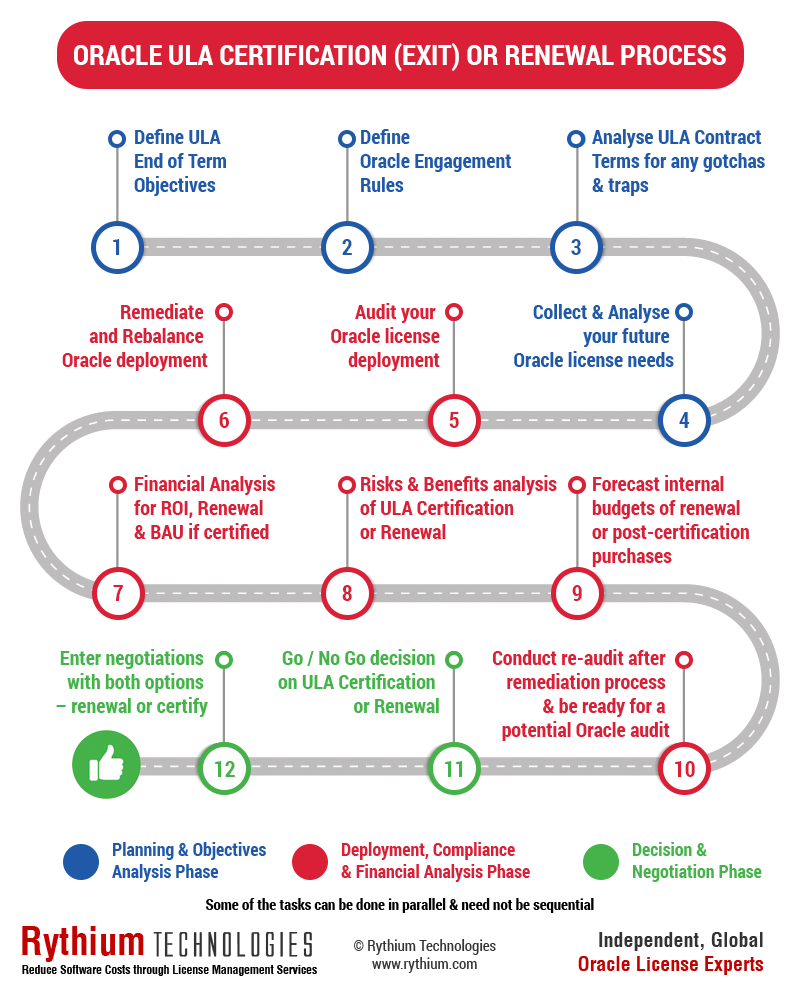Before we begin discussing the Oracle ULA M&A clauses, let us look at the challenges & responsibilities of software licensing during mergers & acquisitions.
Software Licensing Due Diligence during M&As
Engaging in acquisitions or mergers can be a significant financial undertaking. However, neglecting to conduct thorough due diligence can lead to even more costly repercussions, including inadvertent infringements on intellectual property (IP) rights. This could result in the acquiring company being held liable for software licenses that the acquired entity was responsible for obtaining.
To avert this costly oversight, acquiring companies must prioritize IP due diligence. This involves a thorough evaluation of the target company’s IP portfolio, encompassing patents, trademarks, and copyrights. By meticulously examining these assets, acquiring companies can identify potential IP risks and implement proactive measures to mitigate them.
Whose responsibility, is it? CIO or CFO?
While many businesses may mistakenly relegate the issue of software licensing to IT managers, the financial consequences of non-compliance are firmly within the CFO’s domain. While the complexities of software licensing may fall by the wayside during the demanding process of a merger or acquisition, both CFOs and CIOs must assume responsibility for managing their company’s software assets effectively.
Issues in Oracle ULA M&A clauses
Mergers & Acquisitions are major revenue earners for Oracle, and especially so in the Oracle ULA. Some of the key points in about the merger and acquisition clauses in Oracle ULAs are:
In case of Mergers or Acquisitions:
1. CANNOT USE THE ULA
- In the majority of Oracle ULAs, The acquired entity CANNOT use the products in the ULA.
- Exceptions:
- In some of the ULAs there are clauses that allow the acquired entity to use the products in the ULA.
- In such cases the size of the acquired entity is defined (this definition could be by revenue, number of employees, or any other publicly auditable metric)
2. PAYMENT FOR USE OF ULA PRODUCTS
In case the acquired entity wants to use the products in the ULA, the ULA contracting entity must pay additional fees to acquire licenses & support.
3. LOSS OF UNLIMITED DEPLOYMENT RIGHTS
If the acquired entity has any Oracle licenses, then the support for these needs to be paid for. If they are not paid, the ULA contracting entity will lose the rights of the ULA.
In case of getting acquired
The ULA gets terminated if the contracting company gets acquired. The ULA needs to be certified. No refunds will be made of any fees in case the termination is earlier than the originally contracted period of the ULA.
How can we help?
As can be seen, Deciphering the complexities of an Oracle Unlimited License Agreement (ULA) can be a formidable undertaking, especially amidst the dynamic landscape of mergers and acquisitions.
Rythium possesses a comprehensive understanding of Oracle ULA M&A clauses and procedures, enabling us to guide you through the intricacies of integrating your ULAs following a merger or acquisition. We have assisted organizations in conducting due diligence prior to acquisitions and have also aided companies in integrating their ULAs post-merger.
You may want to take a look at our 12 Step ULA Certification Process. In this we analyze all the contractual issues of a ULA to get you the highest benefits of compliance and cost reduction



